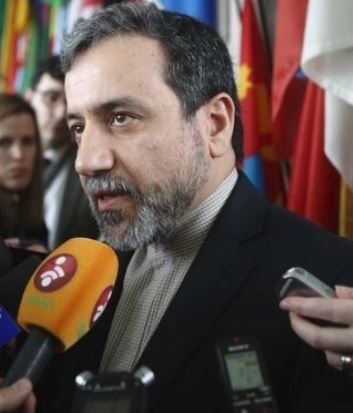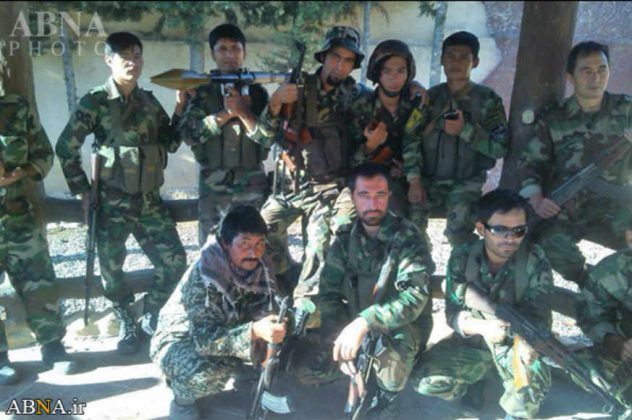May 9, 2019 – Iranian Deputy Foreign Minister Seyyed Abbas Araghchi has warned that tougher U.S. sanctions, which have exacerbated the economic crisis in Iran, may force the government to make savings by repatriating hundreds of thousands of Afghan nationals to their homeland.
In an interview with Iranian state TV on May 8, Mr. Araghchi said: “More than 3 million Afghan nationals are living in Iran. Our dear Afghan brothers hold approximately two million jobs, with an estimated earning of 3 to 5 billion euros which they send home to their families. This money does not go back into the Iranian economy. They work hard to support their families, which is natural and understandable. However, close to 5 billion euros leave the country every year.”
“Also, 480,000 Afghan children are receiving free education in our public elementary and high schools, as decreed by our benevolent Supreme Leader [Ayatollah Ali Khamenei], at an annual cost to the government of 600 euros per student,” Araghchi added. “There are nearly 24,000 Afghan students in our universities. We welcome them to study at our higher education institutions. However, the government has to pay nearly 15,000 euros a year in university tuition for each Afghan student.”
Araghchi noted: “I believe that between 100,000 and 120,000 Afghans hold national health cards which entitle them to free medical and healthcare. They are our dear brothers and sisters whom we must look after. However, this places a huge financial burden on the government. They also receive government food and energy subsidies. We will continue to provide these services as long as we can.”
Araghchi pointed out: “As President [Hassan Rouhani] said earlier today, U.S. sanctions, the economic downturn and a massive drop in oil export revenue will cost our country around 8 billion euros a year. The U.S. will fail in its plan to cut Iranian oil export to zero. However, a sharp decrease in oil revenues will have a significant impact on our economy. Iran will have to take extraordinary measures to protect its economy.”
“Soon we will be unable to shoulder these costs and will have to ask our Afghan brothers and sisters to leave Iran for Afghanistan or another country,” Araghchi warned. “I do not want to worry or scare anyone, but these are the facts. As the president has pointed out, we would have no choice but to implement these measures if the U.S. continued to enforce more stringent sanctions on Iran.”
Araghchi explained: “We prefer not to take such steps unless we have to, but the U.S. and other [Western] countries must realize that the current situation results directly from their actions. We did not create a crisis in Afghanistan, but are a victim of the dire situation in that country.”
On May 7, President Rouhani warned that Iran might scale back its commitments to the 2015 Joint Comprehensive Plan of Action (JCPOA), better known as the Iran Nuclear deal. He said that Iran would enrich uranium beyond limits set by the JCPOA if the EU did not fulfill its promise to protect Iran’s economy against U.S. sanctions within the next 60 days.
When asked about Rouhani’s comments and the possibility of Iran withdrawing from the JCPOA altogether, Araghchi said: “For the past two years, we have been dealing with the [U.S. President Donald] Trump phenomenon and a radical U.S. government. He has labeled the JCPOA ‘disgraceful’ and the ‘worst deal’ the U.S. has ever made. Trump believes that the nuclear deal enabled the Islamic Republic to strengthen its presence in the region, to sell its oil with no difficulty and to develop its economy. They wanted to confront the ‘newly empowered’ Islamic Republic. So the U.S. re-imposed all of the sanctions it had lifted in line with the JCPOA.”
“Meanwhile, the EU dragged its feet on protecting Iran’s economy. European companies take their cues from the U.S. Treasury Department rather than their governments,” Araghchi noted. “The issue is not a partial or complete withdrawal from the JCPOA. We have fulfilled our commitments to the agreement. However, we may relax our obligations in part or completely. We are using legal tools available to us through the JCPOA. Ultimately, we want to keep the deal alive. However, we will keep the option of leaving the JCPOA, but it will have to happen in stages.”

Araghchi explained: “The first phase comprises uranium enrichment, the Arak Heavy Water Reactor Facility, and the Fordo Fuel Enrichment Plant. Under the terms of the JCPOA, we must sell any heavy water produced over 130 tons, and any uranium enriched in excess of 300 tons to international buyers. We would need to reconsider this. Our plan to modernize the facility in Arak did not progress well, mainly because companies involved in the project feared U.S. sanctions. We will need to get that project back on track. So we will visit some of these issues in two months as president has said.”
Araghchi warned: “Although European governments have not protected our financial interest, they took a political stance against the U.S. That was important. INSTEX [Instrument to Support Trade Exchanges, a special purpose vehicle (SPV) established in January 2019 by France, Germany, and United Kingdom to facilitate non-dollar trade with Iran] should include our oil exports. We do not want to create any political tension. However, we will not extend the two-month deadline unless we see real progress and tangible results.”
[Translated from Persian by Fardine Hamidi]



